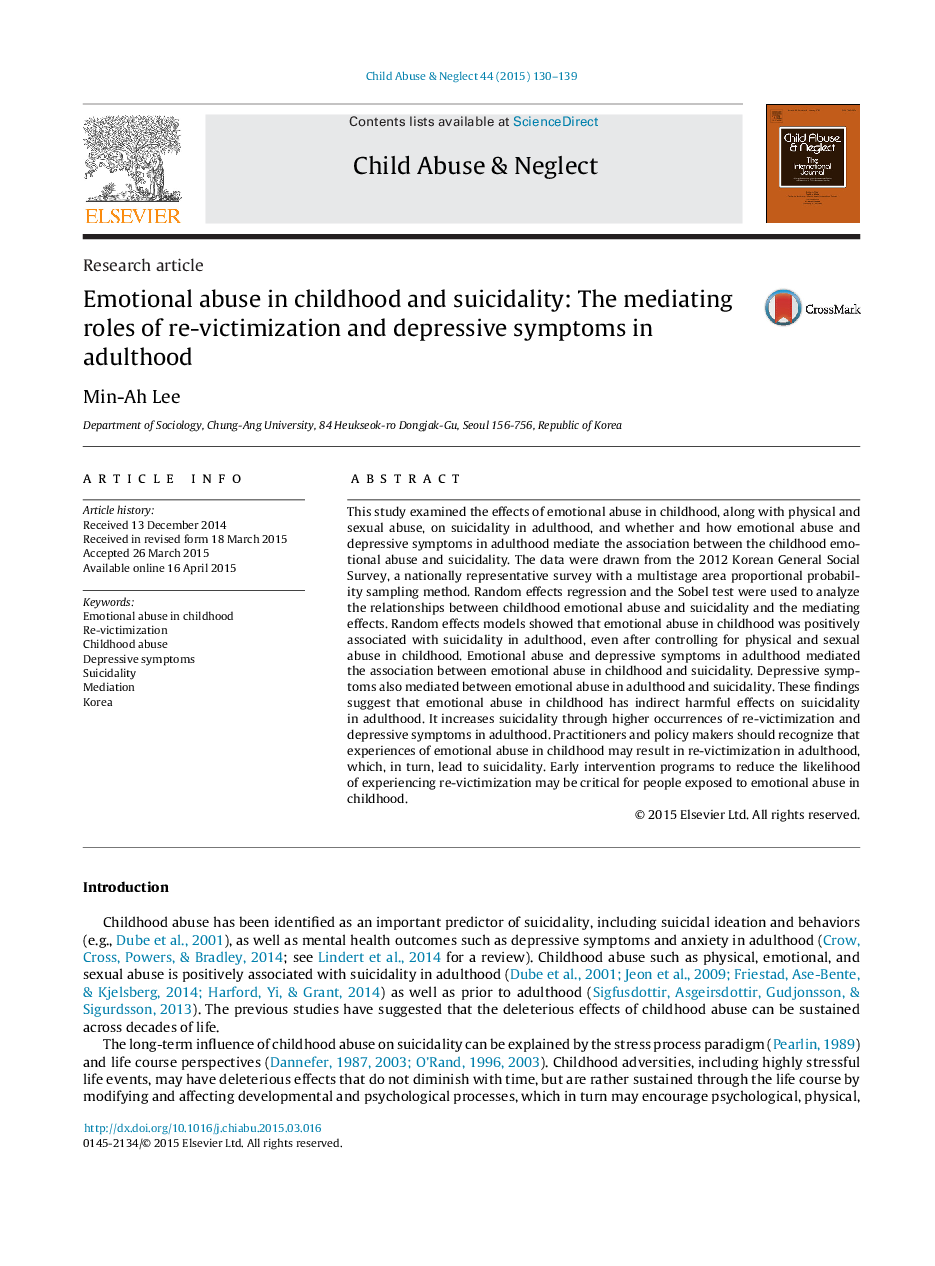| Article ID | Journal | Published Year | Pages | File Type |
|---|---|---|---|---|
| 344675 | Child Abuse & Neglect | 2015 | 10 Pages |
This study examined the effects of emotional abuse in childhood, along with physical and sexual abuse, on suicidality in adulthood, and whether and how emotional abuse and depressive symptoms in adulthood mediate the association between the childhood emotional abuse and suicidality. The data were drawn from the 2012 Korean General Social Survey, a nationally representative survey with a multistage area proportional probability sampling method. Random effects regression and the Sobel test were used to analyze the relationships between childhood emotional abuse and suicidality and the mediating effects. Random effects models showed that emotional abuse in childhood was positively associated with suicidality in adulthood, even after controlling for physical and sexual abuse in childhood. Emotional abuse and depressive symptoms in adulthood mediated the association between emotional abuse in childhood and suicidality. Depressive symptoms also mediated between emotional abuse in adulthood and suicidality. These findings suggest that emotional abuse in childhood has indirect harmful effects on suicidality in adulthood. It increases suicidality through higher occurrences of re-victimization and depressive symptoms in adulthood. Practitioners and policy makers should recognize that experiences of emotional abuse in childhood may result in re-victimization in adulthood, which, in turn, lead to suicidality. Early intervention programs to reduce the likelihood of experiencing re-victimization may be critical for people exposed to emotional abuse in childhood.
